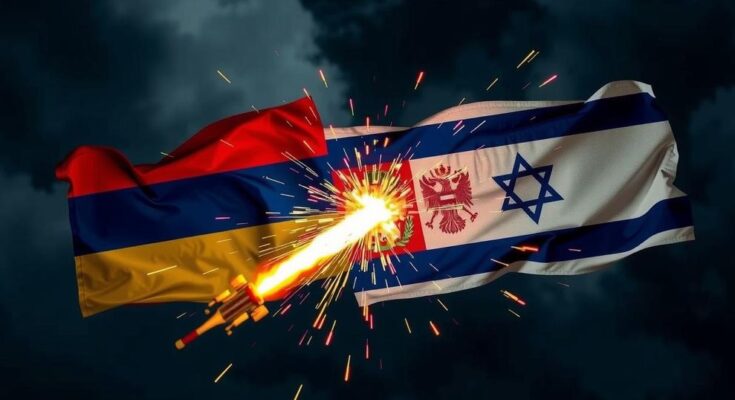Amnesty International urges Slovenia and Montenegro to prevent the MV Kathrin from docking at their ports due to its suspected cargo of explosives headed for Israel, which may contribute to war crimes in Gaza. The situation is compounded by Namibia’s refusal to allow the vessel entry, and concerns about compliance with international humanitarian law and arms control treaties.
Amnesty International has called upon Slovenia and Montenegro to prevent the Portuguese-flagged vessel MV Kathrin, which is suspected of transporting explosives intended for Israel, from docking at their ports. The organization highlighted the considerable risks associated with allowing such cargo to reach Israel, particularly in light of allegations regarding potential contributions to war crimes in Gaza. The Namibian government and Portugal’s Foreign Minister have corroborated that the MV Kathrin carries explosives, specifically eight containers of RDX Hexogen, which are purportedly destined for Israel. Previous actions by Namibian authorities included denying the vessel access to their main harbor due to concerns over its military cargo. Current information suggests that the MV Kathrin plans to dock in Slovenia’s port of Koper before potentially transferring its cargo to Israel. Amnesty International Slovenia’s head, Nataša Posel, emphasized, “The deadly cargo believed to be on board the MV Kathrin must not reach Israel as there is a clear risk that such cargo would contribute to the commission of war crimes against Palestinian civilians.” She urged Slovenia, Montenegro, and all other relevant states to uphold their international obligations by preventing any unauthorized transfer of military supplies. International humanitarian law (IHL) strictly prohibits arms transfers to conflict parties where there exists a significant risk of contributing to war crimes. Notably, Amnesty International has amassed substantial evidence concerning war crimes perpetrated by various factions during the current escalation in Israel and Gaza. The organization asserts that Israel’s military has employed explosive weaponry against civilian populations and infrastructure, thereby violating IHL principles. Additionally, Montenegro, Portugal, and Slovenia, as signatories to the Arms Trade Treaty, are required to establish stringent standards governing international arms trade to mitigate human suffering. Portugal must also address its flag state’s responsibility by ensuring that its vessel does not facilitate the transfer of explosives. Amnesty International advocates for an immediate arms embargo on both Israel and armed groups in Gaza, citing their use of weaponry in conflict that may constitute war crimes. The organization has called upon all states to refrain from facilitating any arms transfers to Israeli forces and to act in conformity with their obligations under the Geneva Conventions. In summary, the call for Slovenia and Montenegro to deny docking rights to the MV Kathrin emerges from serious legal and moral responsibilities to avoid complicity in potential war crimes. The actions taken by various governments reflect a recognition of these obligations and a commitment to international humanitarian standards.
The MV Kathrin, a Portuguese-flagged vessel, is reportedly carrying explosive materials that are believed to be intended for military use by Israel, amid heightened tensions and conflict in the region. The ship’s cargo has raised alarms due to the strong possibility that its contents could contribute to war crimes occurring in Gaza. This concern led to Namibia blocking the vessel from entering its harbor, while Malta and Portugal have been urged to prevent the export or transfer of these explosives. The situation underscores intricate legal obligations that countries must observe in the context of international humanitarian law, particularly concerning arms transfers during armed conflict.
In conclusion, Slovenia and Montenegro face significant pressure from international organizations like Amnesty International to halt the entry of the MV Kathrin into their ports due to the implications of facilitating arms transfers potentially linked to war crimes in Gaza. By complying with international humanitarian law and their respective treaties, these states can avoid complicity in further violence. The ongoing conflict in the region and the necessity for strict arms embargoes highlight the urgent need for responsible action from all jurisdictions involved.
Original Source: www.amnesty.org




